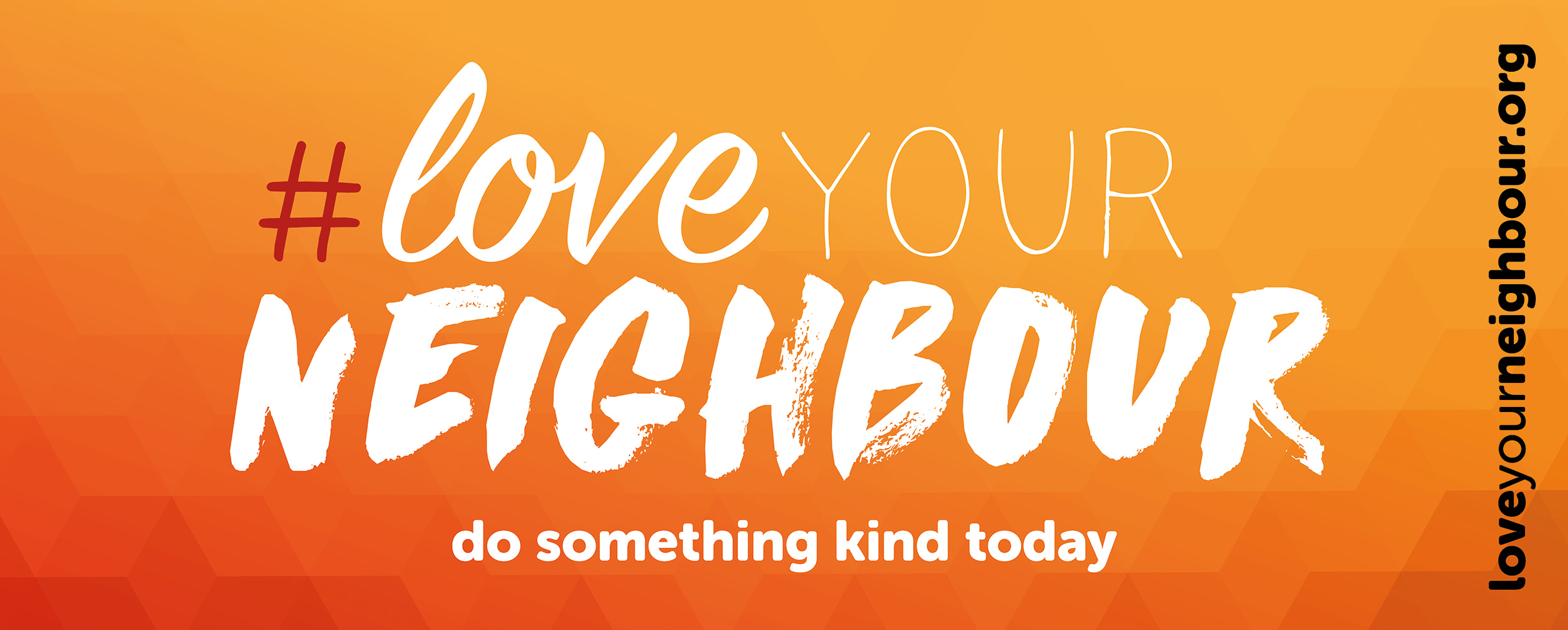The churches in Birmingham, along with lots of other arts organisations, humanist societies and other faith groups, launched an initiative last week to live out Jesus’ words: ‘love your neighbour’ (www.loveyourneighbour.org). It’s a phrase taken right out of Jesus teaching and he defined who our neighbour is in the most famous parable of the good Samaritan (Luke 10:29).
Loving your neighbour is right at the core, not only of what Jesus taught, but of the radical, counter-cultural treatment of strangers and migrants found in the Old Testament law.* We are called to love those who live close to us, perhaps especially when they are culturally, economically or racially different to us, while still faithfully looking to Jesus as our only ultimate hope for lasting joy and peace. As a country, we are realising that recent political changes, poverty, and uncertainty, have brought tensions to the surface which have resulted in a sharp rise in hate crimes and racial abuse, as well as a general climate of fear and mistrust across cultural lines. Birmingham, as a ‘city of refuge’ with a struggling budget, has felt this more than most. As a church, however, we are not surprised, and our response is to remain faithful to what we have already been doing and to explore other ways to live Jesus words.
The world we live in is broken, full of dishonesty and fear, but it is also a world into which God has come, full of truth and grace, to help us change the world by changing us and calling us to step fearlessly into self-giving love of those with whom we share it. Loving our neighbours isn’t new – we’ve been doing this for a long time - but we can hear the cry of the kingdom we live in and respond to it by making our voices louder with news of the kingdom where our real citizenship is. We can respond to migration with GrowBaby, with clothes and supplies for small children in need, with free English lessons, with Foodbank parcels, with friendships on Sundays and through our communities, and with prayer. We can buy coffee for our colleague who voted differently, take a struggling family out to lunch, or pray for our neighbours of a different faith or none.
Over the next few weeks, why not challenge yourself to follow Jesus’ second-greatest commandment, take extra steps to reach out to those around us in all sorts of ways, then share what God’s doing on Facebook, twitter and Instagram, with the hashtag #loveyourneighbour, so more people get to see and celebrate what it looks like to live for a kingdom where the stranger is welcomed in and darkness is no more.
*E.g. Deuteronomy 10:19; see also Matthew 5:43-44, Luke 10:27.

